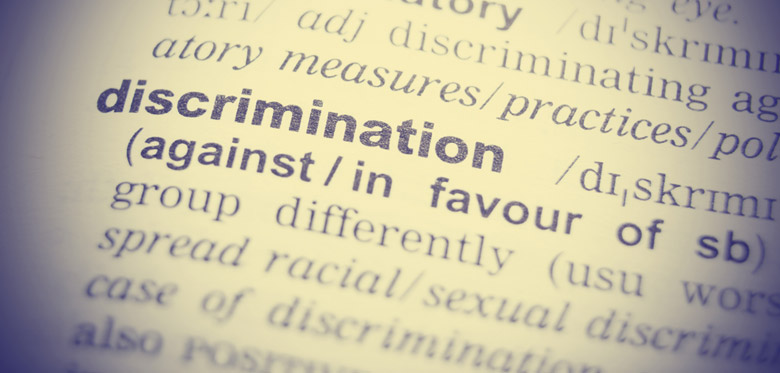Discrimination is defined as treating someone less favourably because of a protected characteristic.
The protected characteristics are defined in the Equality Act 2010 and are: race, religion or belief, age, sex, sexual orientation, gender reassignment, marriage and civil partnership, and disability.
The Equality Act 2010 protects individuals against discrimination at the hands of service providers, including:
- Shops and retail outfits
- Professional, trade and business services
- Hotels and B&Bs
- Cafes, restaurants and other hospitality services
- Social Clubs and recreational services (including entertainment, sports, and arts)
- Facilities for education (including privately run nursery schools or pre-schools)
- Community services.
The Equality Act 2010 says that when providing goods and services, a service provider must not discriminate against a service user by:
- refusing to provide a service user with goods or services
- providing a service user with goods or service on worse terms, or
- causing a service user any other detriment when providing them with goods or services.
A service user has six months less one day from of the alleged act of discrimination to bring a claim in the County Court if they believe that they have been unfairly treated or unlawfully discriminated against when engaging in your service because they hold a protected characteristic. This period will continuously run in the event that the alleged acts are ongoing.
Our specialist civil discrimination solicitors are experienced in supporting businesses and service providers who find themselves in the first stages of defending a discrimination complaints and claim.
You may initially receive questions from a service user who may be trying to understand why the alleged unfavourable treatment occurred. This may then escalate to receipt of a formal complaint, being asked to attend mediation or arbitration and ultimately, receipt of a letter before claim and court action.
Not all complaints and potential claims result in a person sending a letter before claim or taking court action as this can likely be avoided through engagement and action being taken at the inquiry and complaint stages. However, if a business receives correspondence from potential claimants and it is not addressed immediately, this could be taken into account by the court further down the line in the claims process and could have adverse financial consequences for the service provider. It is important to act quickly if you receive a complaint of discrimination in order to protect your trade or service and to ensure you have the best chances of defending the claim.
Early intervention by a specialist solicitor is crucial. Stephensons, is one of the few firms in the country that has a dedicated discrimination law team handling defence of civil claims. Discrimination claims can cause not only significant financial damage to an organisation, they can also damage a business’ brand and reputation.
If you receive a letter before claim or indeed service of a claim form, we have extensive knowledge of and expertise in this area of the law, the practice direction on pre-action conduct and representing clients in defending litigation in the County Courts.
At every stage we can provide guidance and support on what is the best course of action and potential defence for your organisation under a range of fixed fee and hourly charge options.
Call us now on 0161 696 6170 for a no obligations discussion with our specialist civil discrimination defence solicitors.
By Heather Lynch, graduate paralegal



Comments